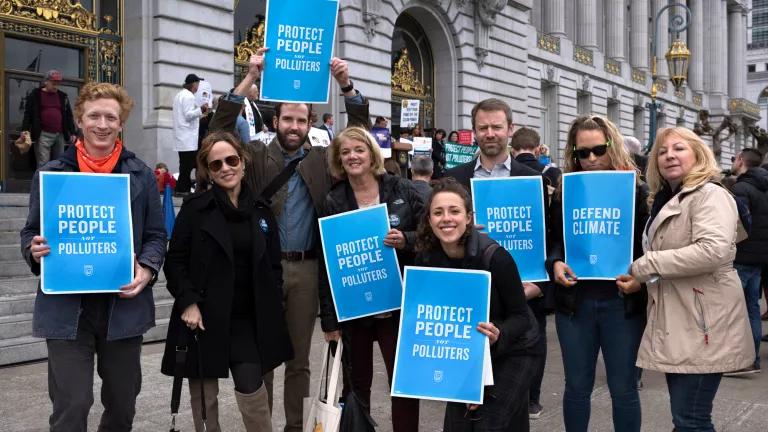
For too long, communities of color, Indigenous peoples, and low-income communities across the United States and around the world have borne a disproportionate burden of exposure to pollution and climate change. This trend is further magnified as the impacts of climate change worsen, from extreme heat in our cities to superstorms that ravage our coastlines.
To help reverse course, U.S. Senator Cory Booker (D-NJ) and Representative Raul Ruiz (D-CA36) have released the Environmental Justice Act of 2019, which would require federal agencies to address environmental justice and cumulative impacts experienced by frontline communities. Senator Booker and Representative Ruiz released similar legislation in 2017.
The EJ Act of 2019 would codify into law the existing Executive Order on Environmental Justice (EO 12898), which was issued in 1994 by President Bill Clinton and required that all agencies, including the Environmental Protection Agency (EPA), make addressing environmental justice part of their missions. Despite the historic importance of the order, it lacked key enforcement and benchmarking requirements, and many agencies have still not followed through on centering environmental justice in their missions.
By entering it into law, all federal actions and agencies would be required to address and eliminate environmental injustices experienced by historically burdened populations, as well as to enhance public participation and information access for those communities. The law codifies the existence and budget for the National Environmental Justice Advisory Council (NEJAC), a key advisory body that ensures community voices are centered in agency decisionmaking. And it ensures that critical environmental justice grant programs that support impacted communities are signed into law.
Additionally, the EJ Act of 2019 ensures that the cumulative impacts of permitting decisions under the Clean Air Act and Clean Water Act are considered before projects can move forward. Integrating cumulative impacts into this legislation means that all public health or environmental risks experienced by a community will be considered together, and that project permits will not be issued or renewed unless there is reasonable certainty that the public health of vulnerable populations will not be harmed. Additionally, it would require permitting agencies to consider a facility’s historical violations when deciding to issue or renew a permit.
Finally, the legislation would allow individuals that are disproportionately harmed by government actions to bring lawsuits under Title VI of the 1964 Civil Rights Act. Title VI allows communities harmed by disproportionate treatment in federally funded programs to seek redress, but it has historically failed to be enforced.
The release of the EJ Act of 2019 comes at a key moment for environmental justice nationally. This past June, House Natural Resources Committee Chairman Raul Grijalva (D-AZ3) and Representative Donald McEachin (D-VA4) released the Statement of Principles for Environmental Justice Legislation, which provides guidance on the essential elements of any future environmental justice legislation. It also comes on the heels of a landmark agreement between environmental justice groups and national organizations, including NRDC, that will ensure an intersectional approach to the creation and implementation of climate advocacy priorities.
All of these steps could not come at a better time, especially as the Trump administration continues its all-out war on the environment and communities. The EJ Act of 2019 serves as an important benchmark in our continued fight for justice for historically burdened communities. NRDC is proud to stand with our partners from across the country in supporting this important legislation.



